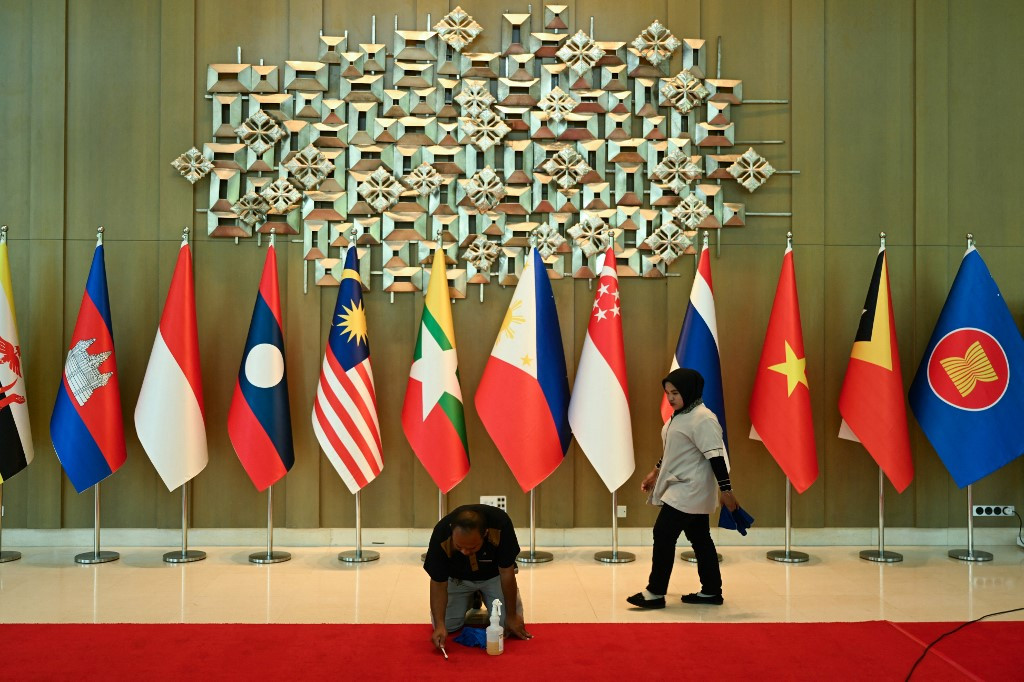Popular Reads
Top Results
Can't find what you're looking for?
View all search resultsPopular Reads
Top Results
Can't find what you're looking for?
View all search resultsMiddle powers in the US-China trade war
To take advantage of the situation and maintain their autonomy, middle powers will need to pursue multilateral cooperation.
Change text size
Gift Premium Articles
to Anyone
A
s United States tariffs begin to reshape global trade flows, many countries are worried that a tsunami of discounted Chinese goods, originally destined for the US, will hit their shores. To keep them out, especially as recessionary pressures mount, some may be inclined to impose their own tariffs on Chinese imports. In that case, China would be cut off entirely from international trade, delivering an unexpected victory for US President Donald Trump, who would undoubtedly claim credit for this new Great Wall.
To avert this scenario, China must pursue short-term policies that align with its long-term goal of building a global governance architecture for a multipolar world. China harbors no illusions that it will be the twenty-first century’s hegemon. India will inevitably become a superpower by mid-century. Europe might join their ranks, too, as Trump’s might-is-right worldview seems poised to accelerate and deepen European integration.
The current Sino-US standoff seemingly reflects a shared understanding that avoiding the Thucydides Trap, when tensions between an incumbent hegemon and a rising power lead to conflict, will require an eventual agreement on respective spheres of influence.
Both sides’ defensive efforts to expand their global reach have devolved into a crude form of imperialism. Trump has designs on Canada, Greenland, Panama and Gaza, while China’s territorial claims in the South China Sea have brought its maritime border to the doorstep of several Southeast Asian countries.
But it remains to be seen how the trade war will factor into this contest. The tariffs that the US and China imposed against one another have effectively decoupled their trade. Will countries hit by his “reciprocal” tariffs be cowed into joining the US sphere of influence as part of bilateral trade deals?
The answer is no, so long as China respects its trade partners’ right to befriend all superpowers. In such a scenario, the benefits of trading with China remain too large to forgo. But to take advantage of these benefits and maintain their autonomy, middle powers will need to pursue multilateral cooperation.
As a first step, middle powers must convince China that it is in its long-term interest to stop the potential fire sale of goods intended for the US market, which means voluntary export restraints.



















